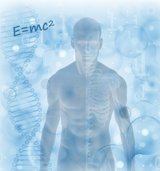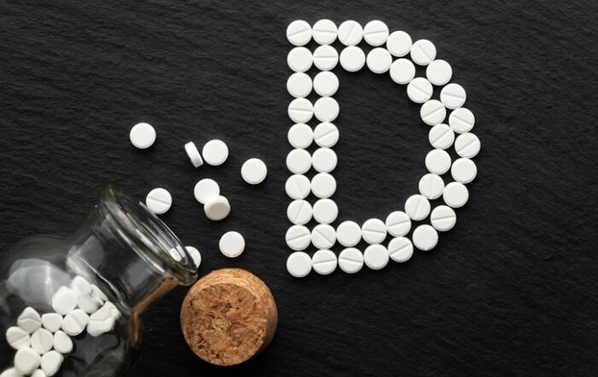Health and Wellness
Is Too Much Vitamin D Harmful?
Vitamin D toxicity, sometimes called a vitamin D overdose, is a rare but potentially dangerous condition. It occurs when someone has too much vitamin D in their body.
Vitamin D toxicity is also called hypervitaminosis D.
A vitamin D overdose is typically a side effect of taking large doses of vitamin D supplements. It would not occur because of direct sun exposure or diet.
We will cover the most common symptoms of too much vitamin D, who is at risk for a vitamin D overdose, rare symptoms, complications, and more.
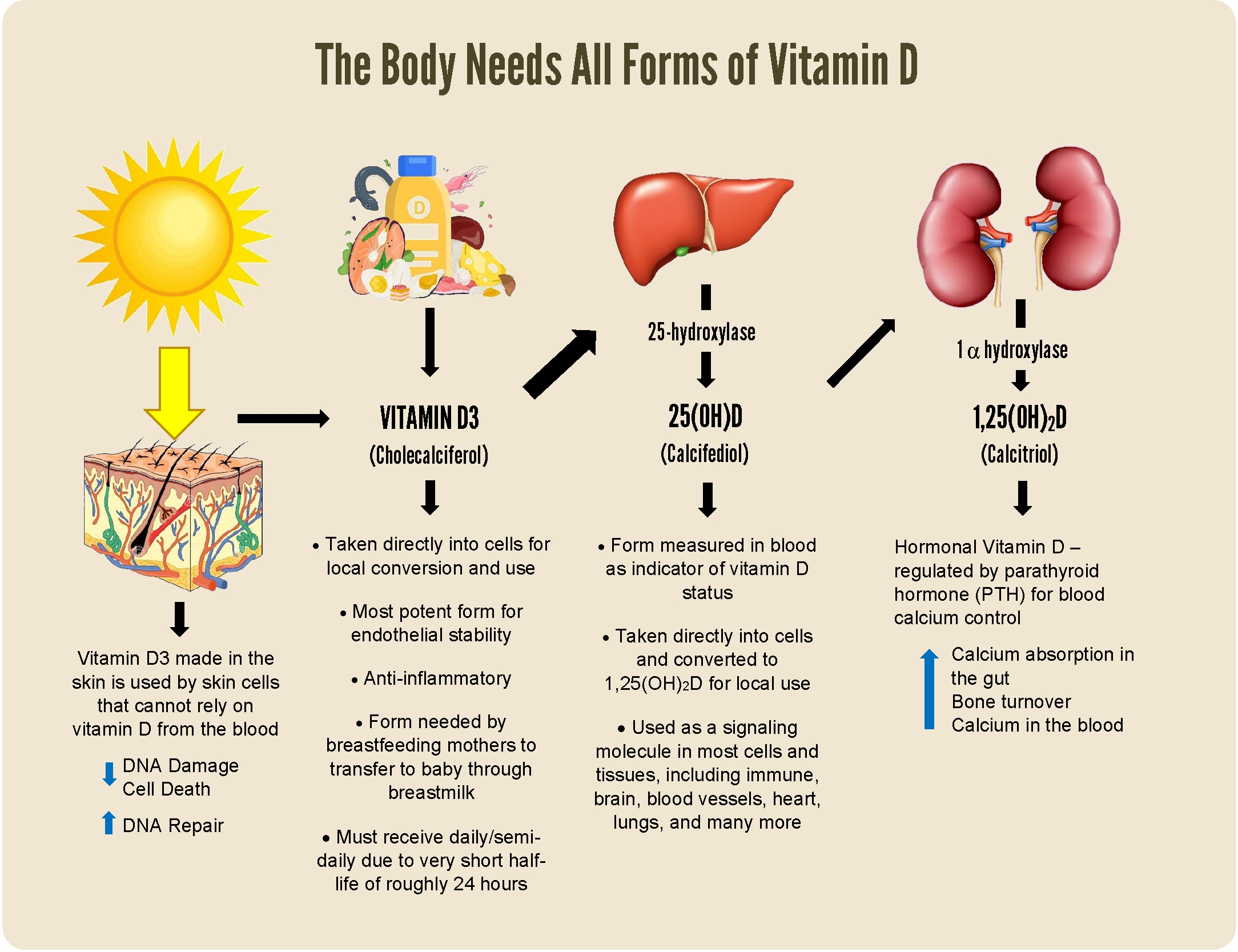
Most Common Symptoms of Too Much Vitamin D
Vitamin D is a nutrient the body needs for building healthy bones and maintaining bone health.
The body cannot absorb calcium—a primary bone health component—without the help of vitamin D.
Vitamin D is naturally available in some foods, including fatty fish like salmon, egg yolks, red meat, and liver. Fortified foods have vitamin D added and include fortified milk and cereals. You can also get vitamin D when direct sunlight converts chemicals in your skin into calciferol (active vitamin D).
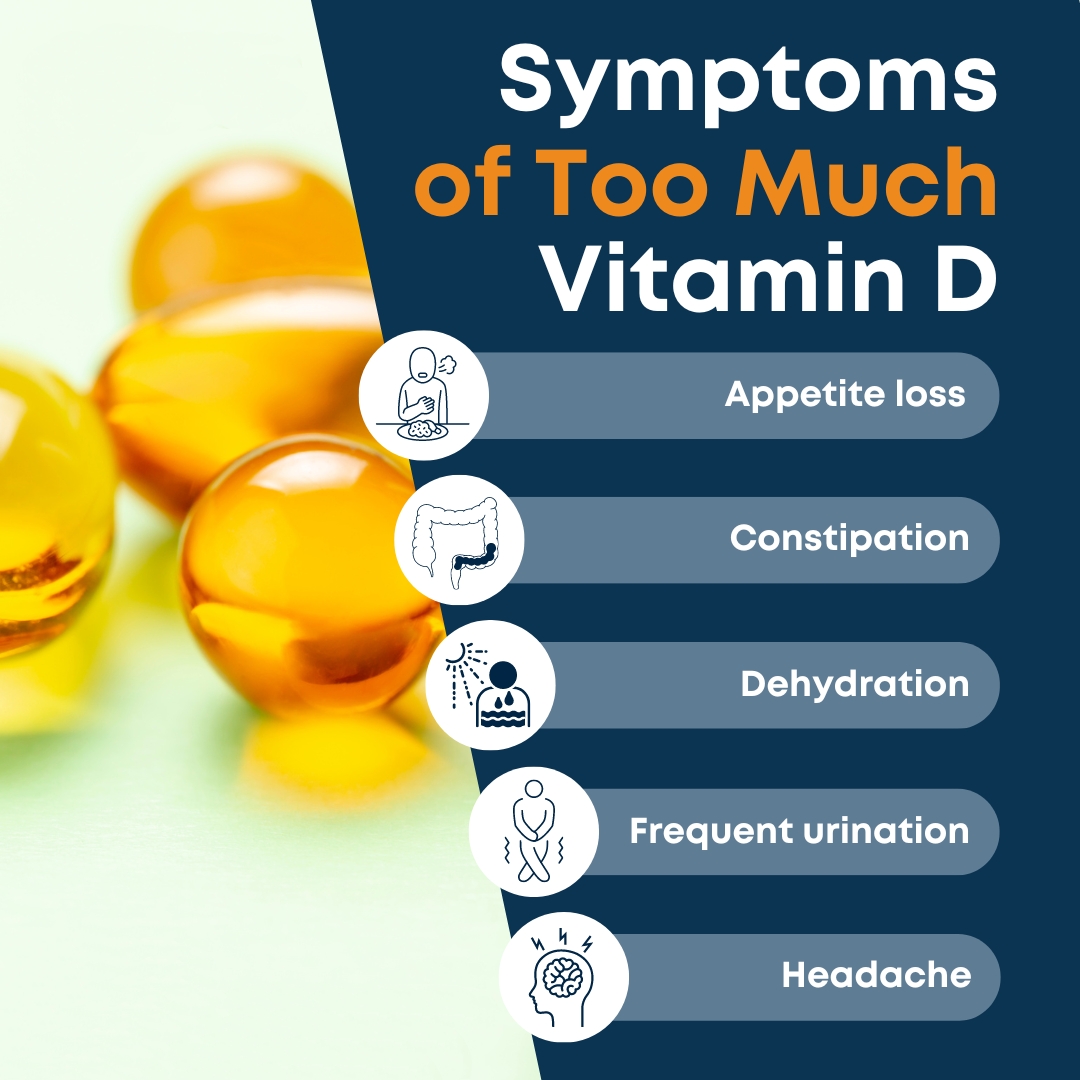
Vitamin D2 vs. D3
The common types of vitamin D received from your diet are D2 (ergocalciferol) and D3 (cholecalciferol). They play the same role in the body but come from different sources. Vitamin D2 comes from plant sources, while vitamin D3 comes from animal sources. Vitamin D3 has been found to bind more effectively, making it a stronger source, which allows for lower doses with the same health benefits.
Some people are at a higher risk for a vitamin D deficiency (not having enough vitamin D in the body). They include:
- Those who cannot get outdoors (because they are frail or homebound)
- People living in care facilities (such as a skilled nursing facility) or in correctional facilities
- Those who wear clothing that covers their skin when they are outdoors
- People with dark skin tones
- People whose bodies do not adequately process vitamin D due to a health condition, such as chronic kidney disease or liver disease
Researchers suspect people with dark skin tones get less vitamin D because the higher level of melanin present in darker skin limits the rate of skin synthesis. This is when the top layer of your skin (epidermis) activates (synthesizes) vitamin D when exposed to the sun's ultraviolet (UV) radiation.
People in the above-listed groups can benefit from vitamin D supplementation throughout the year and not just in the winter months, when there is less sun exposure.
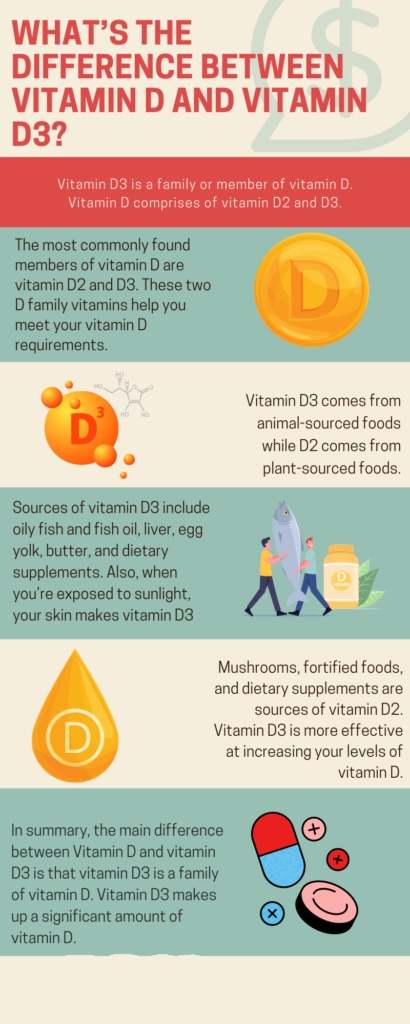
Vitamin D toxicity is rare, even in people who take supplements. For symptoms of toxicity to present, you would need to take significant doses over a long period. Even so, research suggests that with the increasing use of vitamin D treatments, incidents of toxicity have become more frequent.
Many of the causes of vitamin D toxicity are a consequence of inappropriate prescribing, not taking vitamin D as prescribed, and the use of high-dose and unlicensed preparations. Many cases are preventable with appropriate use, proper formulation, and avoidance of unlicensed products.
Excessive effects of vitamin D can lead to higher calcium levels in the blood—a condition called hypercalcemia.
It is often diagnosed at an early stage during routine blood work.
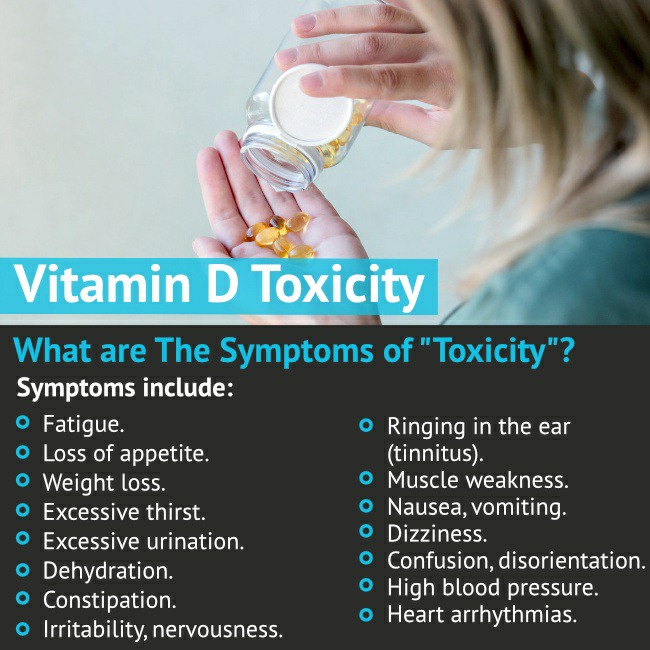
Most people with hypercalcemia will not have symptoms. But, symptoms can occur in people who have taken high doses of vitamin D for a long time or in someone who has taken an extremely high dose over a short time.
Symptoms caused by high calcium levels can vary, depending on the cause and how long levels have been elevated. Symptoms may include:
- Digestive troubles—nausea, vomiting, poor appetite, and constipation
- Increased thirst
- Increased urination
- Muscle weakness or twitches
- Fatigue or feeling extremely tired
- Confusion
- Bone pain
- Bone loss or fragile bones that might be prone to breakage
- High blood pressure
You might experience more severe side effects with higher doses—mainly weekly a 20,000 to 50,000 international unit (IU) dosing. The 50,000 IU weekly dose is the highest possible prescribed dose. Long-term supplementation of vitamin D3 in doses ranging from 5,000 to 50,000 IU appears safe when taken correctly.
Higher doses are typically prescribed to people whose bodies do not adequately process vitamin D due to some health conditions. Such conditions include asthma, psoriasis, rheumatoid arthritis, rickets, and tuberculosis. The higher dose is often prescribed to correct or prevent deficiency.
Use High Dosages Only Under Medical Supervision
Many people do not have side effects from the 50,000 IU dose, but this high a dose should only be taken under a healthcare provider's supervision. Never take high doses of any vitamin or supplement without a healthcare provider's approval.
Are Some People More Susceptible to Vitamin D Overdose?
Vitamin D toxicity is more common in people who have certain medical conditions. This includes people with:
- Granulomatous disorders: Conditions that cause granuloma (mass of cells that develop in inflamed or infected skin areas), such as sarcoidosis, granulomatosis with polyangiitis, cat scratch disease, and some kinds of fungal infections
- Congenital disorders: Disorders present at birth, such as spina bifida and congenital heart disease
- Lymphomas: Cancers of the lymphatic system
- Dysregulated vitamin D metabolism: Can lead to asymptomatic hypercalcemia caused by vitamin D intake, in which hypersensitivity can occur even when taken in safe doses
In people with dysregulated vitamin D metabolism, vitamin D intake raises the concentration of vitamin D in the body, leading to toxicity.
Rare Symptoms From Vitamin D Supplements
According to the National Institutes of Health, the daily recommended dose for children ages 1 to 18 and adults is 600 IU. The numbers are less for babies and higher for adults over age 70. Healthcare providers might prescribe higher or lower doses based on specific health concerns.
Supplementing with vitamin D can lead to side effects. It can also lead to longer-term but rare problems. Such rare effects include:
- Abnormal heart rhythms: High levels of calcium in the blood can interrupt electrical heart activity and contractions, leading to changes in heart rate patterns.
- Kidney troubles: This includes kidney stones, kidney damage, and kidney failure.
- Calcification (hardening): High levels of calcium in the blood can lead to calcium deposits in the kidneys, heart, arteries, and other tissues.
If you take high doses of vitamin D and experience symptoms of hypercalcemia, let your healthcare provider know. They can request blood work to check vitamin D, calcium, and phosphorus levels. A phosphorus test helps determine if there is kidney damage.
Healthcare providers consider vitamin D levels low if a person has 20 nanograms (ng) of vitamin D per milliliter (mL) of blood or lower. If levels rise above 50 ng/mL, you might experience adverse effects.
Complications
For some, vitamin D overdose or toxicity leads to severe complications. Such complications include an altered mental state and kidney problems.
Altered Mental State
Hypercalcemia related to vitamin D toxicity might alter a person's mental state. Symptoms of an induced mental state related to vitamin D-induced hypercalcemia include confusion, depression, and psychosis. In rare cases, a coma might occur.
A 2021 Clinical Nephrology—Case Studies report examined the case of a 64-year-old man who accidentally took 200,000 IU of vitamin D because he did not understand the medication instructions. He showed an altered mental state and other severe hypercalcemia symptoms.
The man was agitated and confused for the first 10 days of his hospital stay, but symptoms started to improve as his calcium levels dropped. It took 18 days for his calcium levels to get back to normal.
Kidney Problems
Vitamin D toxicity can lead to a kidney injury or kidney failure. Too much vitamin D causes high calcium levels, leading to water loss from too much urination and to kidney calcification.
Hypercalcemia can also lead to blood vessel constriction and decreased kidney function. It might cause severe complications in people who have existing kidney disease, such as anemia (reduced blood cells), bone weakness, and severe swelling from fluid retention.
Vitamin D Flush: Hype or Helpful?
The term "vitamin D flush" refers to the removal of excess vitamin D from the body. While there is no quick way to do this, the first step is to stop taking vitamin D and calcium supplements.
Management of vitamin D toxicity falls into three stages. The first of these is stabilization and supportive therapies, which might include intubation, intravenous fluids, and intensive care for people with extremely high vitamin D and calcium levels.
Additional measures include the correction of hypercalcemia using loop diuretics, bisphosphonates, glucocorticoids, or calcitonin (bone hormone drug), and renal replacement therapies if the kidneys have been affected.
When to See a Provider
If you are taking vitamin D supplements, or a prescribed higher dose, and start to experience signs of hypercalcemia, let your healthcare provider know. They will request blood work to check vitamin D and calcium levels. Depending on those results, they may reduce your vitamin D dosing or have you stop taking supplements altogether.
Taking vitamin D in high-dose supplements is never a good idea without checking with a healthcare provider. Discuss supplementation with a healthcare provider to ensure you are taking appropriate doses.
Get Vitamin D via Diet
For many people, a well-balanced diet with good vitamin D sources might be enough to meet the daily recommended 600 IU (=15 mcg).
1 microgram (mcg) = 40 IU of vitamin D.
10 microgram (mcg) = 400 IU of vitamin D.
15 microgram (mcg) = 600 IU of vitamin D.
20 microgram (mcg) = 800 IU of vitamin D.
100 microgram (mcg) = 4,000 IU of vitamin D.
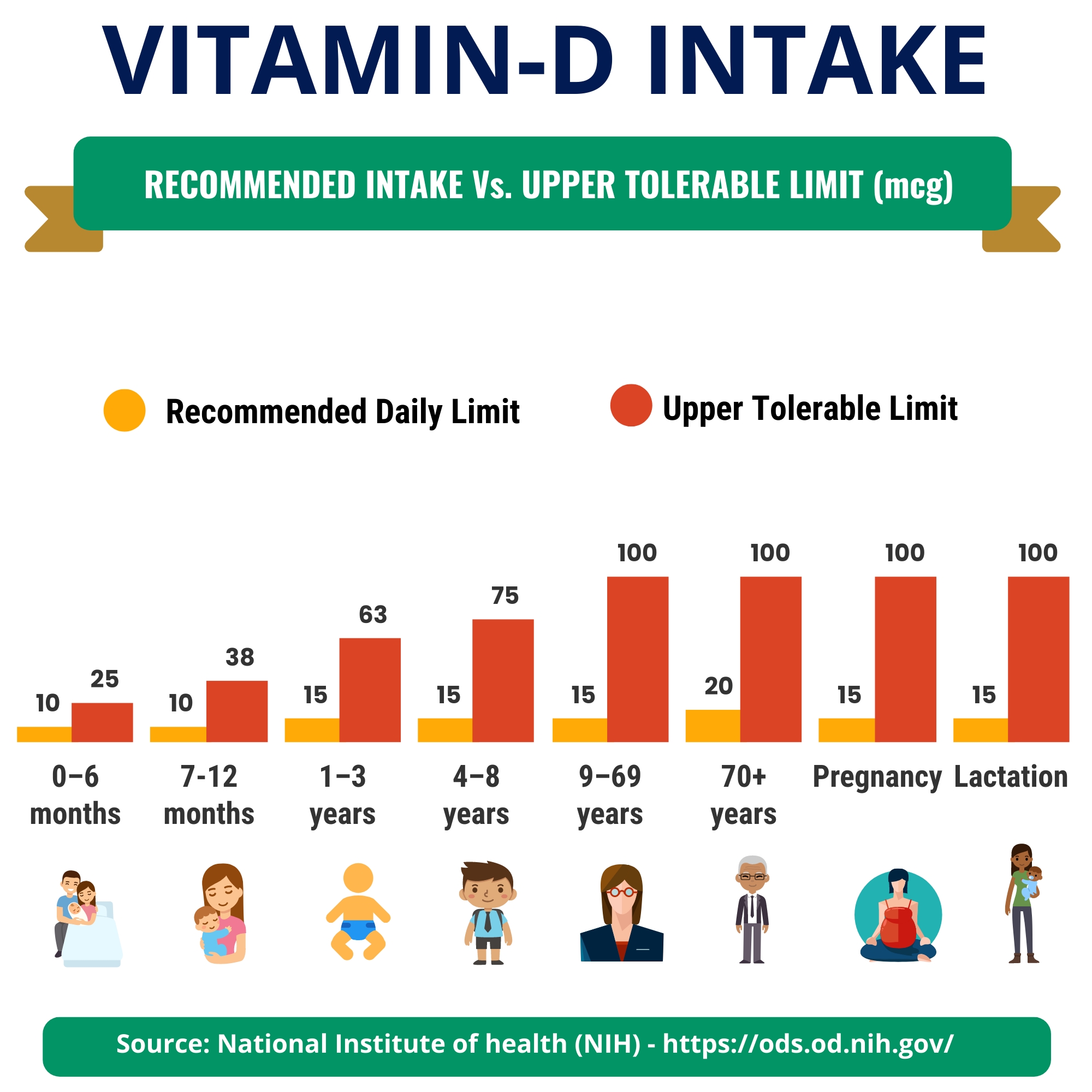
Summary
Vitamin D is vital to helping you to stay healthy. But even without underlying health conditions, you may need supplements to achieve optimal levels.
While it is rare, it is possible to experience vitamin D toxicity, which shows up as hypercalcemia. Common signs of hypercalcemia include digestive problems, fatigue, appetite loss, frequent urination, high blood pressure, and heart abnormalities. Complications of hypercalcemia are an altered mental state and kidney problems.
Vitamin D toxicity is more common in people who have medical conditions where it is necessary to prescribe higher supplement doses. To reduce your risk, avoid high doses and do not start taking supplements without approval from a healthcare provider.
If you are on a higher dose prescribed by a healthcare provider, you should report side effects and get your blood work tested regularly.
Body-Field Scan
Ready to find out what's impacting your energy levels by using our bioenergetic scanning technology. Check out your body’s energy with a Body-Field scan and gain deeper insight into your holographic self with our certified Bioenergetic Practitioner. For an In-Clinic visit click here, or, for a Telehealth (remote) session click here.
We offer a completely new, alternative and bioenergetic healthcare approach based on 21st century science, technology and quantum physics with personalized, holistic therapy solutions such as, our unique BioScalar Infusion℠ therapy, NES body-field scan technology, miHealth biofeedback, PEMF, Rife and Vibroacoustic (VAT) therapies that can restore optimal health and well-being throughout the body, mind and spirit in the most natural way. Let us help you restore your health and energy!


